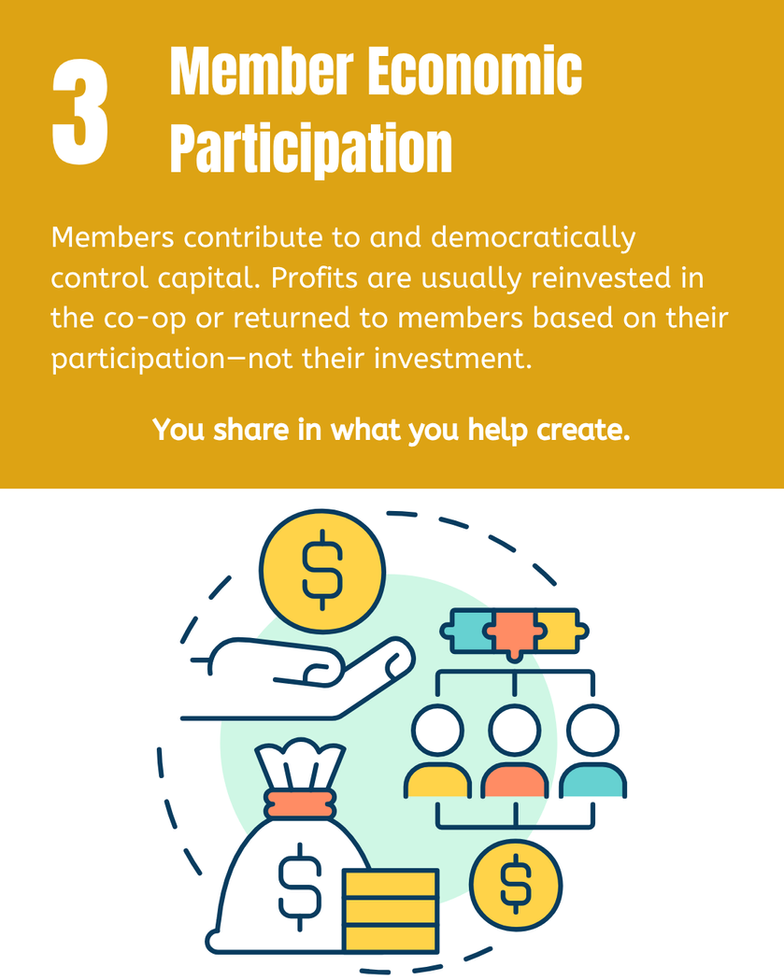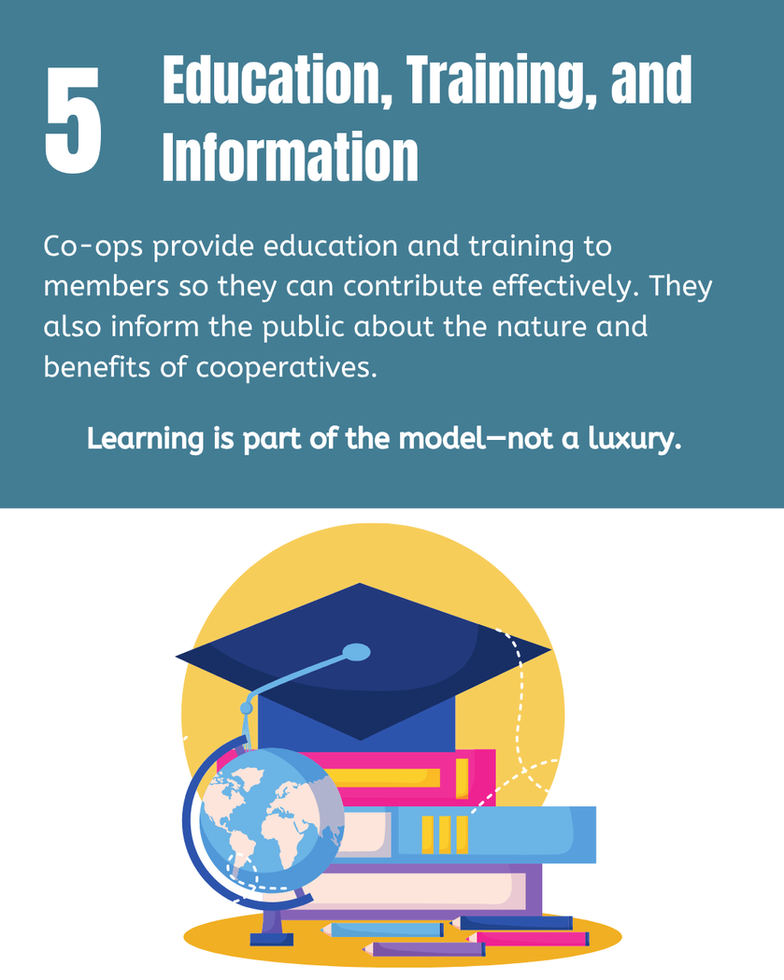All about Beanchain Coffee
- David Baxter
- Jul 13, 2025
- 5 min read

Core Purpose and Mission
Beanchain’s mission is simple and ambitious:
Build fair, worker-directed coffee shops that serve their communities.
Create a model that transitions gradually from traditional ownership to a fully democratic, worker-owned cooperative.
Fight poverty, promote solidarity, and empower workers to co-create their workplace.
Values driving Beanchain:
Good Faith: Assuming positive intent and communicating transparently.
Love: Building relationships and supporting coworkers and the community.
Fairness: Treating everyone equitably and sharing economic value.
How Beanchain Aligns with Cooperative Principles
The Seven Cooperative Principles guide Beanchain:
Voluntary and Open Membership: Open to all, without discrimination.
Democratic Member Control: Everyone has a voice—one member, one vote.
Member Economic Participation: Members share profits and control capital.
Autonomy and Independence: Self-governed, even when partnering externally.
Education, Training, and Information: Learning is a core practice.
Cooperation Among Cooperatives: Co-ops help other co-ops grow stronger.
Concern for Community: People and place come before profit.
How Beanchain embodies these principles:
Membership: Any worker can apply to apprentice and eventually become a member.
Democratic Control: Members have equal votes; founders retain a veto until full transition.
Economic Participation: Profits are shared; financial decisions are democratic.
Autonomy: Locally controlled business.
Education: Extensive resources and training in democratic practices.
Cooperation: Incubates other cooperatives and plans the Beanchain Network.
Community: Programs like Pay It Forward meals and Unhoused Help pamphlets serve the public.
What Beanchain Is
Beanchain is:
A worker-directed coffee shop in Mesa, Arizona.
A prototype for converting conventional businesses into worker-owned cooperatives.
An educational laboratory for tools like the Solution Seeking System.
A community hub offering resources, events, and mutual aid.
An incubator for future cooperatives in other sectors.
It’s more than a café—it’s a real-world experiment proving that business can be fair, democratic, and community-focused.
Organizational Structure and Lifecycle
Current Model: Worker-Directed
Founder Authority: Founders retain some powers, including a veto, to protect early stability.
Democratic Practices: Workers participate in forums, casual voting, and team-based incentives.
Gradual Transition: Founders are repaid over time, and workers become members.
Roles Defined
Founder
Early contributors of time, money, and risk.
Expectations: Communication, support, shared administration.
Perks: Veto vote (sparingly used), profit share, eventual buyout by members.
Member
Workers completing apprenticeship and approved unanimously.
Perks: Voting rights, profit sharing, retirement package, hardship wage postponement.
Apprentice
Workers training for membership under a mentor.
Process: Voluntary initiation, pre-assessment, minimum one-year apprenticeship, final unanimous vote.
Worker
Baristas and general staff.
Perks: Healthcare assistance, living wage commitment, path to apprenticeship.
The Co-Worker Mutual Agreement
This foundational document outlines mutual commitments:
Operate in good faith.
Communicate clearly and early.
Perform duties diligently.
Be punctual.
Show kindness to customers and coworkers.
Avoid gossip.
Stay non-violent and compassionate under stress.
Special Policies:
Shift Coverage: Clear procedures.
Disruptive Guests: Compassionate, safe responses.
Zero Tolerance: Violence and bigotry result in immediate termination.
Gossip: Two solution-seeking sessions before termination is an option.
The Solution Seeking System
The Solution Seeking System assists systems(any group of people) by identifying solutions that improve communication, connection, wisdom, leadership, or any other aspect of those systems. It creates a smooth cycle of growth and change that creates living systems that can better serve their participants.
Within the Beanchain, we use the Solution Seeking System in combination with other leadership tools to build a seamless cycle of growth that rewards its participants for bravely communicating and understanding one another.
Key Terms:
System: Any group of people interacting with one another in an organized way. This could be a relationship between two people, a club with many members, a business, or any other kind of human organization.
Solution: An actionable and measurable plan/pattern/tool that can be used to improve a System.
Communication Protocol: The 3-Step communication pattern that is used to create understanding and output solutions. This tool is the foundation of the solution seeking system. The three steps are Introspection, Finding mutual Understanding, and then Solution Seeking.
Living System: A system that is being actively built and improved on using solutions output through the Solution Seeking Protocol.
Wisdom Principles: Concepts that are used in the Solution Seeking Philosophy. These are ideas that will need to be well understood for the Communication Protocol to be properly used.
Leadership Tools: Tools that use the Communication Protocol to help generate solutions. These tools are key to the improvement and maintenance of a System.
Leader (Servant): An individual interested in the service, maintenance, and development of the system in which they are participating. A person entrusted with authority with the goal of guardianship over the system.
Communication Protocol:
Introspection: Reflect before engaging.
Mutual Understanding: Engage in non-judgmental listening and clarifying questions to find mutual understanding.
Solution Seeking: Build actionable solutions together.
Leadership Tools
Feedback: Informal teaching and trust-building.
Targeted Conversations: Private discussions when feedback isn’t enough.
Solution Seeking Sessions: Formal processes for recurring or serious issues.
One-on-Ones: Monthly check-ins for relationship-building.
Performance Reviews: Every ~2 months, with clear ratings.
Escalation: Five unsuccessful solution-seeking attempts can result in termination. For serious misconduct, fewer attempts are needed.
Day-to-Day Practices
Daily checklists (opening, closing, shift changes).
Communication via Discord and Miro.
Emphasis on clarity, voting, and participation.
Compensation and Economic Participation
Commitment to a living wage ($21/hr + tips in Mesa).
Profit sharing after operational costs.
Option for wage postponement with 5% interest.
Community Programs
Beanchain Community Book:
A public journal for writing and drawing.
Archived online when filled.

Pay It Forward Board:
Customers can pre-purchase meals for neighbors in need.
Meals can be purchased in store and online: https://www.paypal.com/ncp/payment/YQMTTJ42SJA2Y

Unhoused Help Pamphlets:
Guides listing local resources for unhoused neighbors.
Available in-store and online: Unhoused Help
Shared Workspace:
Free space with seating, printers, whiteboards, and QR ordering.

Community Art Space:
Free gallery wall—Sign up here

Community Library:
Curated by community recommendations.

Local Marketplace:
Exclusively for local small businesses vetted for ethical practices.

Cooperative Incubation & Future Projects
Beanchain Network (Future Nonprofit):
Support multiple locations while preserving local ownership.
Other Projects in Development:
Beanchain Marketing Cooperative
Solution Seeking Company
Beanchain Music Cooperative & Baristers
Quotes and Community Voices
From David Baxter:
“I’ve been shaped by my experiences with poverty, and no one else should have to experience what I did. Beanchain is a reflection of that mission.”
From Shannon Baxter:
“When humans experience poverty, the first to suffer are the animals. By fighting poverty for humans, my hope is we can end poverty for animals as well.”
Community Testimonials:
“I used your pay-it-forward board 3 days in a row. I just got a job and wanted to thank you for feeding me this week. It really helped.”
“I just moved to Arizona and had a hard time finding my community, but I feel like I found it here at Beanchain.”
Contacts & Location
Address:1110 W Southern Avenue, Mesa, AZ 85210 Suite 8
Contacts:
David Baxter – (480) 201-6965 – david.baxter@bchain.coffee
Shannon Baxter – (480) 332-8026 – shannon.baxter@bchain.coffee
Next Steps
Milestones:
Accept the first apprentices.
Transition workers into membership.
Complete living wage implementation.
Launch the Beanchain Network nonprofit.
Develop and distribute Solution Seeking System resources.
Why Beanchain Matters
Beanchain is:
A practical experiment in worker democracy.
A local business solving real problems.
A prototype for a more equitable economy.
Its work shows:
Business can be fair and community-rooted.
Workers can and should be trusted with power.
Poverty and isolation can be met with solidarity and creativity.




















